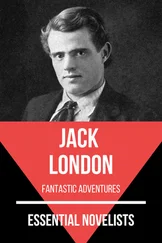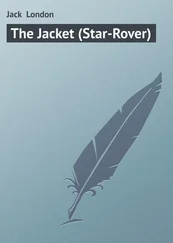Jack London - Smoke Bellew
Здесь есть возможность читать онлайн «Jack London - Smoke Bellew» весь текст электронной книги совершенно бесплатно (целиком полную версию без сокращений). В некоторых случаях можно слушать аудио, скачать через торрент в формате fb2 и присутствует краткое содержание. Жанр: Классическая проза, Прочие приключения, на английском языке. Описание произведения, (предисловие) а так же отзывы посетителей доступны на портале библиотеки ЛибКат.
- Название:Smoke Bellew
- Автор:
- Жанр:
- Год:неизвестен
- ISBN:нет данных
- Рейтинг книги:4 / 5. Голосов: 1
-
Избранное:Добавить в избранное
- Отзывы:
-
Ваша оценка:
- 80
- 1
- 2
- 3
- 4
- 5
Smoke Bellew: краткое содержание, описание и аннотация
Предлагаем к чтению аннотацию, описание, краткое содержание или предисловие (зависит от того, что написал сам автор книги «Smoke Bellew»). Если вы не нашли необходимую информацию о книге — напишите в комментариях, мы постараемся отыскать её.
Smoke Bellew — читать онлайн бесплатно полную книгу (весь текст) целиком
Ниже представлен текст книги, разбитый по страницам. Система сохранения места последней прочитанной страницы, позволяет с удобством читать онлайн бесплатно книгу «Smoke Bellew», без необходимости каждый раз заново искать на чём Вы остановились. Поставьте закладку, и сможете в любой момент перейти на страницу, на которой закончили чтение.
Интервал:
Закладка:
"Who's Whiskers?" Smoke queried, pausing in the wolfing-down of a hot strip of meat.
"Why, he's the top geezer. He's the Scotcher. He's gettin' old, an' he's sure asleep now, but he'll see you to-morrow an' show you clear as print what a measly shrimp you are on his stompin'-grounds. These grounds belong to him. You got to get that into your noodle. They ain't never been explored, nor nothin', an' they're hisn. An' he won't let you forget it. He's got about twenty thousand square miles of huntin' country here all his own. He's the white Indian, him an' the skirt. Huh! Don't look at me that way. Wait till you see her. Some looker, an' all white, like her dad — he's Whiskers. An' say, caribou! I've saw 'em. A hundred thousan' of good running meat in the herd, an' ten thousan' wolves an' cats a-followin' an' livin' off the stragglers an' the leavin's. We leave the leavin's. The herd's movin' to the east, an' we'll be followin' 'em any day now. We eat our dogs, an' what we don't eat we smoke 'n cure for the spring before the salmon-run gets its sting in. Say, what Whiskers don't know about salmon an' caribou nobody knows, take it from me."
"Here comes Whiskers lookin' like he's goin' somewheres," Shorty whispered, reaching over and wiping greasy hands on the coat of one of the sled-dogs.
It was morning, and the bachelors were squatting over a breakfast of caribou-meat, which they ate as they broiled. Smoke glanced up and saw a small and slender man, skin-clad like any savage, but unmistakably white, striding in advance of a sled team and a following of a dozen Indians. Smoke cracked a hot bone, and while he sucked out the steaming marrow gazed at his approaching host. Bushy whiskers and yellowish gray hair, stained by camp smoke, concealed most of the face, but failed wholly to hide the gaunt, almost cadaverous, cheeks. It was a healthy leanness, Smoke decided, as he noted the wide flare of the nostrils and the breadth and depth of chest that gave spaciousness to the guaranty of oxygen and life.
"How do you do," the man said, slipping a mitten and holding out his bare hand. "My name is Snass," he added, as they shook hands.
"Mine's Bellew," Smoke returned, feeling peculiarly disconcerted as he gazed into the keen-searching black eyes.
"Getting plenty to eat, I see."
Smoke nodded and resumed his marrow-bone, the purr of Scottish speech strangely pleasant in his ears.
"Rough rations. But we don't starve often. And it's more natural than the hand-reared meat of the cities."
"I see you don't like cities," Smoke laughed, in order to be saying something; and was immediately startled by the transformation Snass underwent.
Quite like a sensitive plant, the man's entire form seemed to wilt and quiver. Then the recoil, tense and savage, concentered in the eyes, in which appeared a hatred that screamed of immeasurable pain. He turned abruptly away, and, recollecting himself, remarked casually over his shoulder:
"I'll see you later, Mr. Bellew. The caribou are moving east, and I'm going ahead to pick out a location. You'll all come on to-morrow."
"Some Whiskers, that, eh?" Shorty muttered, as Snass pulled on at the head of his outfit.
Again Shorty wiped his hands on the wolf-dog, which seemed to like it as it licked off the delectable grease.
Later on in the morning Smoke went for a stroll through the camp, busy with its primitive pursuits. A big body of hunters had just returned, and the men were scattering to their various fires. Women and children were departing with dogs harnessed to empty toboggan-sleds, and women and children and dogs were hauling sleds heavy with meat fresh from the killing and already frozen. An early spring cold-snap was on, and the wildness of the scene was painted in a temperature of thirty below zero. Woven cloth was not in evidence. Furs and soft-tanned leather clad all alike. Boys passed with bows in their hands, and quivers of bone-barbed arrows; and many a skinning-knife of bone or stone Smoke saw in belts or neck-hung sheaths. Women toiled over the fires, smoke-curing the meat, on their backs infants that stared round-eyed and sucked at lumps of tallow. Dogs, full-kin to wolves, bristled up to Smoke to endure the menace of the short club he carried and to whiff the odor of this newcomer whom they must accept by virtue of the club.
Segregated in the heart of the camp, Smoke came upon what was evidently Snass's fire. Though temporary in every detail, it was solidly constructed and was on a large scale. A great heap of bales of skins and outfit was piled on a scaffold out of reach of the dogs. A large canvas fly, almost half-tent, sheltered the sleeping– and living-quarters. To one side was a silk tent — the sort favored by explorers and wealthy big-game hunters. Smoke had never seen such a tent, and stepped closer. As he stood looking, the flaps parted and a young woman came out. So quickly did she move, so abruptly did she appear, that the effect on Smoke was as that of an apparition. He seemed to have the same effect on her, and for a long moment they gazed at each other.
She was dressed entirely in skins, but such skins and such magnificently beautiful fur-work Smoke had never dreamed of. Her parka, the hood thrown back, was of some strange fur of palest silver. The mukluks, with walrus-hide soles, were composed of the silver-padded feet of many lynxes. The long-gauntleted mittens, the tassels at the knees, all the varied furs of the costume, were pale silver that shimmered in the frosty light; and out of this shimmering silver, poised on slender, delicate neck, lifted her head, the rosy face blonde as the eyes were blue, the ears like two pink shells, the light chestnut hair touched with frost-dust and coruscating frost-glints.
All this and more, as in a dream, Smoke saw; then, recollecting himself, his hand fumbled for his cap. At the same moment the wonder-stare in the girl's eyes passed into a smile, and, with movements quick and vital, she slipped a mitten and extended her hand.
"How do you do," she murmured gravely, with a queer, delightful accent, her voice, silvery as the furs she wore, coming with a shock to Smoke's ears, attuned as they were to the harsh voices of the camp squaws.
Smoke could only mumble phrases that were awkwardly reminiscent of his best society manner.
"I am glad to see you," she went on slowly and gropingly, her face a ripple of smiles. "My English you will please excuse. It is not good. I am English like you," she gravely assured him. "My father he is Scotch. My mother she is dead. She is French, and English, and a little Indian, too. Her father was a great man in the Hudson Bay Company. Brrr! It is cold." She slipped on her mitten and rubbed her ears, the pink of which had already turned to white. "Let us go to the fire and talk. My name is Labiskwee. What is your name?"
And so Smoke came to know Labiskwee, the daughter of Snass, whom Snass called Margaret.
"Snass is not my father's name," she informed Smoke. "Snass is only an Indian name."
Much Smoke learned that day, and in the days that followed, as the hunting-camp moved on in the trail of the caribou. These were real wild Indians — the ones Anton had encountered and escaped from long years before. This was nearly the western limit of their territory, and in the summer they ranged north to the tundra shores of the Arctic , and eastward as far as the Luskwa. What river the Luskwa was Smoke could not make out, nor could Labiskwee tell him, nor could McCan. On occasion Snass, with parties of strong hunters, pushed east across the Rockies , on past the lakes and the Mackenzie and into the Barrens. It was on the last traverse in that direction that the silk tent occupied by Labiskwee had been found.
"It belonged to the Millicent-Adbury expedition," Snass told Smoke.
"Oh! I remember. They went after musk-oxen. The rescue expedition never found a trace of them."
Читать дальшеИнтервал:
Закладка:
Похожие книги на «Smoke Bellew»
Представляем Вашему вниманию похожие книги на «Smoke Bellew» списком для выбора. Мы отобрали схожую по названию и смыслу литературу в надежде предоставить читателям больше вариантов отыскать новые, интересные, ещё непрочитанные произведения.
Обсуждение, отзывы о книге «Smoke Bellew» и просто собственные мнения читателей. Оставьте ваши комментарии, напишите, что Вы думаете о произведении, его смысле или главных героях. Укажите что конкретно понравилось, а что нет, и почему Вы так считаете.











